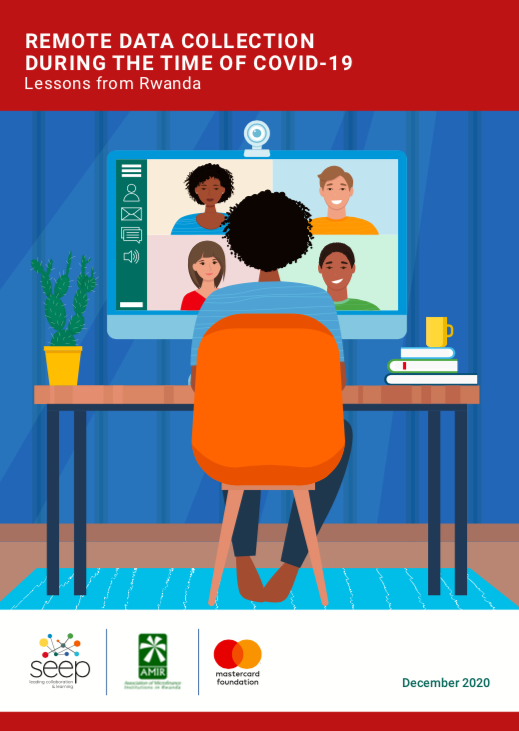2020 | The SEEP Network

This learning brief explains the virtual approach used to develop the end of program learning synthesis due to the COVID-19 lockdown in Rwanda and travel restrictions in many other countries. A discussion ensues around the successes and challenges faced in implementing this approach. This is followed by an overview on ways in which stakeholders used virtual tools to maintain contact with their clients despite the lockdown. The learning brief concludes by extracting lessons from the uses of virtual approaches in the RFL3 program that are relevant to other programs exploring virtual alternatives.
The learning brief has been informed by an in-depth review of the program documentation and interviews with the SEEP Network, the Association of Microfinance Institutions Rwanda (AMIR), and other program stakeholders within and outside of Rwanda.

1621 North Kent Street, Ste 900,
Arlington, VA, 22209
P 202.534.1400
F 703.276.1433
Website Photos: © mari matsuri
